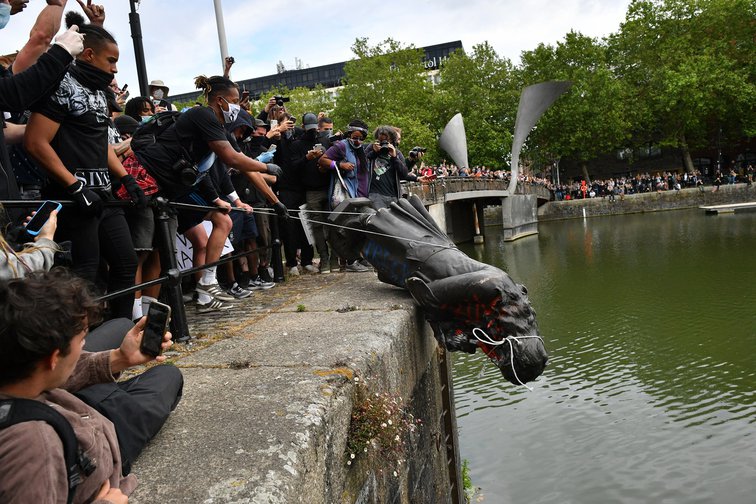Just this week, ministers compared programmes to “decolonise” university curricula (which generally involve introducing more non-white writers and examining the uncomfortable aspects of colonialism) with Soviet Union-style censoring.
Responding to questions about whether our public spaces should be dominated by statues that celebrate imperialists and slavers, ministers claimed they are necessary to “understand our history” urging museums instead to “retain and explain”. This is a transparently dishonest position. Any rational individual can understand the difference between “understanding” and “celebration”. We seem able to understand the history of Nazi Germany perfectly well without a statue of Hitler in Trafalgar Square.
Indeed, when the Museum of Home, in east London, tried to 'retain and explain', moving a statue of the slave trader Robert Geffrye from a position of celebration in front of the building to an exhibit examining the slave trade, Dowden “leaned on” the museum to keep the statue where it was. He then wrote to all museums hinting darkly that, should they similarly misbehave, their funding would be cut.
The “retain and explain” slogan is intellectually dishonest. Most museums have more in their collection than they can display in public. Rotating exhibits is a standard aspect of museum management. By (in practice) banning rotation of items celebrating imperialists and slavers, the government is actually compelling museums to prioritise those items. The government is also giving itself new powers to force local authorities to celebrate empire’s leading figures and slavers.
Under housing secretary Robert Jenrick’s new planning proposals, ministers will be able to overrule local authorities that vote to remove statues or change street names (even though these decisions are taken by elected councillors).
A rose-tinted view of empire is nothing new amongst our political establishment. Boris Johnson wrote about Africa: “The problem is not that we were once in charge, but that we are not in charge anymore.” Jacob Rees-Mogg wrote an entire book devoted, in one reviewer’s words, to “the kind of sentimental jingoism and empire-nostalgia currently afflicting our country”.
Politicians' cringeworthy literary endeavours are not, in themselves, problematic. The problem occurs when government uses the coercive power of the state to promote its preferred view of history. This is a trait of authoritarian states, not democracies.
All of this is often trivialised as a ‘culture war’. In reality, it’s entirely about politics. Our understanding of history influences how we vote. A key driver of support for the modern Conservative Party is the promise to return Britain to an imagined golden age. As the historian Alex von Tunzelmann observed in the Atlantic: “…it is hard to avoid the sense that embedded in Brexit is a form of ‘Make Britain great again.’”
If we start to believe that the golden days of empire were not so golden, we may be less willing to vote for those who promise a return. Similarly, stoking fears of immigration has often been a vote winner. It’s far more difficult to do this if too many of us understand the colonial roots of modern immigration. Finally, culture war helps stoke blind partisanship. It fuses our own identities, not so much to loving our own ‘side’, but rather to hating everyone else. Culture war partisans vote purely to beat the ‘enemy’, rendering rational political debate almost irrelevant. The Republican Party, in the United States, has used this tactic to great effect.
Anyone serious about preserving our democracy should take the government’s long-running, and increasingly autocratic, approach to history very seriously.






Comments
We encourage anyone to comment, please consult the oD commenting guidelines if you have any questions.